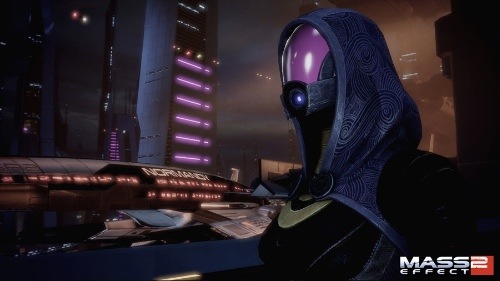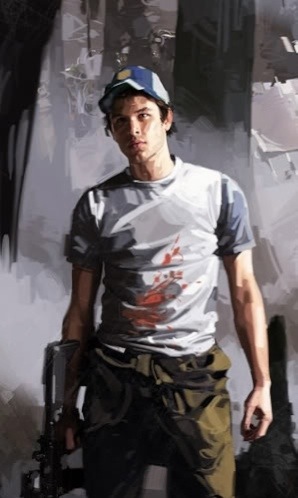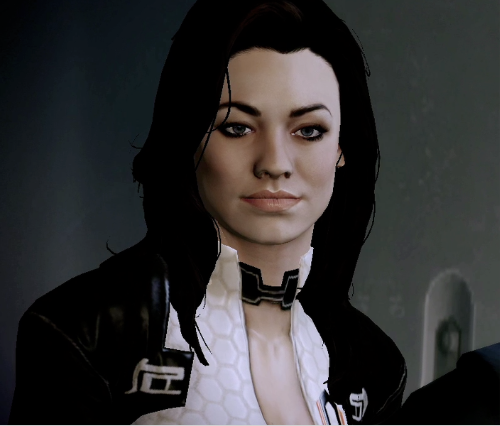Mass Effect 2: An Examination of Character
 Mon, March 8, 2010 at 3:09 AM
Mon, March 8, 2010 at 3:09 AM Defining what makes a “good” character is relatively easy as long as you stick to useless generalities. It is someone that feels like a realistic human being. It is when you dive into the details that things become decidedly muddier.
Games are not a medium known for creating believable characters. This is somewhat perplexing considering that games have more untapped potential for this than any other medium in history. They can combine great writing, acting, and visuals with the unique element of interactivity. It is only recently that we are beginning to see games scratch the surface of what is possible.
 Bioware has led the way in this area. Playing Mass Effect 2 makes it abundantly clear how far games have come. They continue to top not only most every other developer in the industry, but also themselves, in creating interesting, believable characters time and time again.
Bioware has led the way in this area. Playing Mass Effect 2 makes it abundantly clear how far games have come. They continue to top not only most every other developer in the industry, but also themselves, in creating interesting, believable characters time and time again.
Yet, when I try to figure out exactly what makes their characterization so good, I can’t quite come to a solid conclusion. I know that they’re steadily getting better by examining my gut reactions to their characters. I enjoyed spending time with the Dragon Age cast more than most of Mass Effect’s crew. I don’t even remember Jade Empire’s characters. Mass Effect 2 seems on track to be their best effort yet.
I know they must be doing something right because despite the terrible, stiff, lifeless animations Bioware games are cursed with, their characters continue to be fascinating and fun to spend time with.
Unlike many improvements in games, this is an area where things tend to be far more subtle. Characters might display a wider range of more complex emotions than before. The writing might slowly get better. The team might figure out how to integrate their backstories and personal histories more closely into gameplay so you can get to know them better. The characters talk amongst themselves more, making them feel more organic and alive.
I have no doubt that character development in gaming is still in its infancy. All I have to do is examine how much better Mass Effect 2 is than its predecessor, or how much better even the original Mass Effect was than much of what came before it, to see how far things have come in a short time. After only playing a little bit of Mass Effect 2, these older titles already feel weaker by comparison.
 Admittedly, Mass Effect 2 doesn’t seem to be quite as adept at Dragon Age at this point in making your group feel like a true team - the characters don’t talk to each other as much and, though far less so than the original Mass Effect, it still feels kind of like a grouping of individuals than the illusion of togetherness forged by Dragon Age’s fantastic inter-party banter. Still, this is nicely balanced by conversations that are a good sight more pleasant to watch thanks to a more cinematic presentation and better animation. Still, these are issues above and beyond the consideration of the character development itself - important, but a side note in this particular discussion.
Admittedly, Mass Effect 2 doesn’t seem to be quite as adept at Dragon Age at this point in making your group feel like a true team - the characters don’t talk to each other as much and, though far less so than the original Mass Effect, it still feels kind of like a grouping of individuals than the illusion of togetherness forged by Dragon Age’s fantastic inter-party banter. Still, this is nicely balanced by conversations that are a good sight more pleasant to watch thanks to a more cinematic presentation and better animation. Still, these are issues above and beyond the consideration of the character development itself - important, but a side note in this particular discussion.
Of course, it’s not just Bioware figuring this character thing out. Valve, for instance, has made major strides as well. Particularly through advancements made in Half-Life 2: Episode One and Episode Two, Alyx Vance has become one of the most compelling female characters in gaming. Even in a silly game like Left 4 Dead, Valve has managed to figure out how to inject more lifelike characters into the game. Left 4 Dead 2’s cast is far more lifelike, likable, and realistic than the first, which wasn’t too shabby in the first place.
 I think these developments are incredibly exciting and I can’t wait to see what’s to come. One of the primary reasons I play games is to get sucked into new worlds and see new things, whether this is through elaborate fantasy like Mass Effect or more down-to-earth settings like Forza 3, the reason remains the same.
I think these developments are incredibly exciting and I can’t wait to see what’s to come. One of the primary reasons I play games is to get sucked into new worlds and see new things, whether this is through elaborate fantasy like Mass Effect or more down-to-earth settings like Forza 3, the reason remains the same.
It is hard to express how exciting it is for me to be able to add a new element to my short list of reasons to continue to love gaming: spending time with interesting characters.




Reader Comments